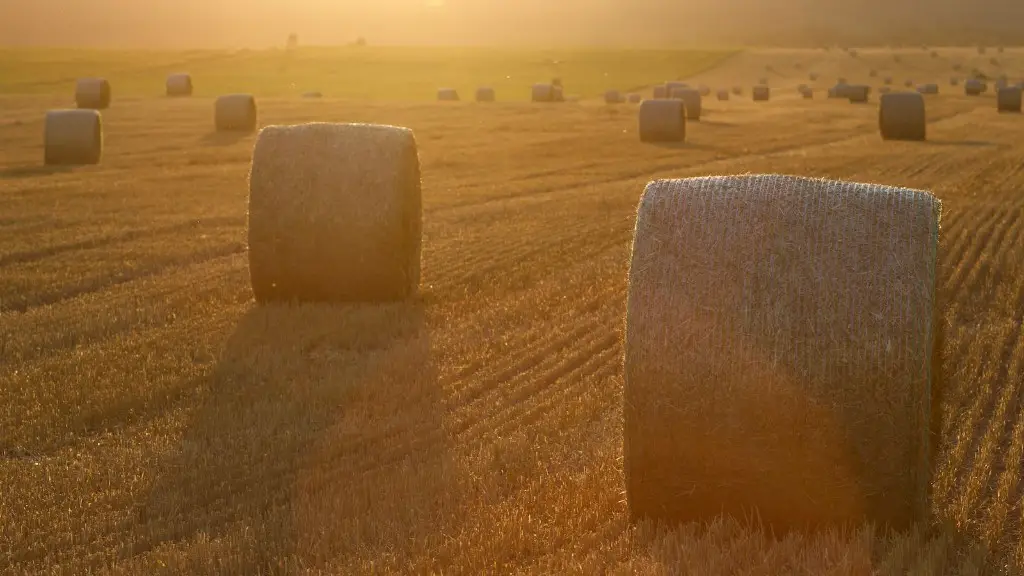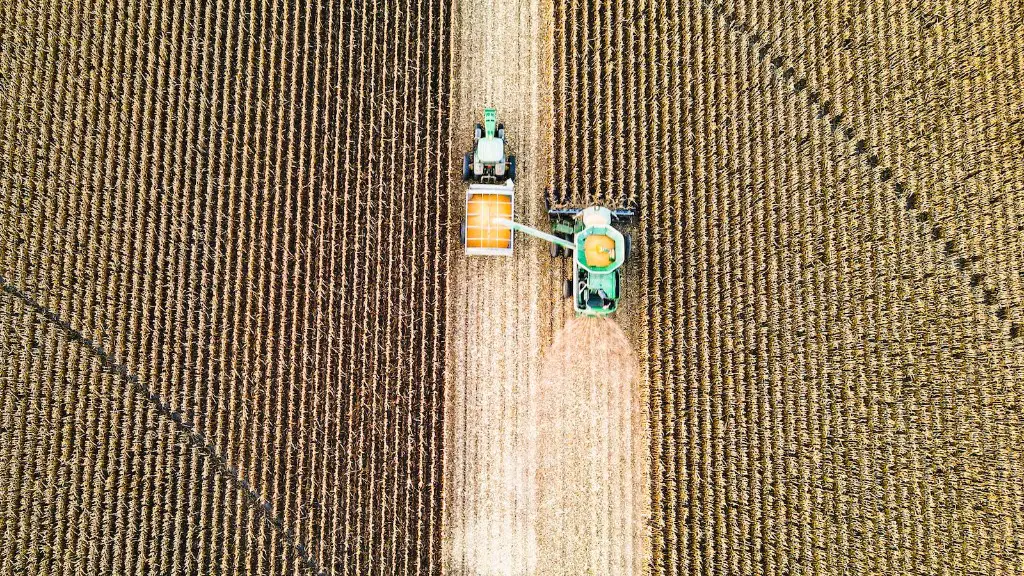Beef contributes to national agriculture through the production of food and feed, as well as by-products that can be used in other products. The meat industry provides many jobs, both on the farm and in processing plants, and is an important part of the economy.
Beef contributes to national agriculture in a number of ways. It is an important source of income for farmers and ranchers, as well as a significant contributor to the economy. Beef also provides a nutritious, high-quality protein source for people all over the world.
How much does the beef industry contribute to our national economy?
In 2022, cattle production is forecast to represent about 17 percent of the $462 billion in total cash receipts for agricultural commodities. With rich agricultural land resources, the United States has developed a beef industry that is largely separate from its dairy sector. The majority of cattle are fed on grain, hay, and other roughage, and are finished on grain to produce the high-quality beef for which the United States is known. The United States is the world’s leading beef producer and exporter.
The beef industry is a vital part of the US economy, providing raw materials that support the production of finished products in various economic sectors. These sectors include food, pharmaceutical, and retail. The industry provides many jobs and contributes to the overall prosperity of the country.
What is the impact of the beef industry
While it is true that beef production carries an enormous environmental footprint, it is important to note that there are some beef farms that are using more sustainable methods and doing far less damage to the natural world. These farms are an important part of the solution to the environmental problems associated with beef production. We need to support these farms so that they can continue to operate and expand their operations.
Beef cattle may be used to produce meat or generate seedstock (breeding animals). The intended markets may dictate what breed or breeds are best suited for the operation. Some producers choose to breed females to produce calves to sell for breeding stock or market animals.
How does meat benefit the economy?
The industry is a major contributor to the US economy, directly and indirectly providing 59 million jobs in the US. It is estimated that the industry contributes approximately $894 billion in total to the US economy, or just under 6 percent of total US GDP. The industry has a significant impact on firms in all 440 sectors of the US economy, through its production and distribution linkages.
The meat and poultry industry is a vital part of the economy, responsible for millions of jobs and billions of dollars in wages. The industry is also a major contributor to the nation’s food supply, providing a safe and nutritious source of protein for American consumers.
What are the positive effects of beef production?
Grazing is a vital part of maintaining healthy grasslands, as it helps to improve soil quality with manure and preserve open space and wildlife habitat. Additionally, carbon is sequestered in the grasses and soils of grazing lands, making it an important part of the fight against climate change.
The livestock industry is a major source of pollution and environmental degradation. In addition to greenhouse gas emissions, the livestock industry is a major source of water and land pollution, and a driver of deforestation. The livestock industry is also a major contributor to acid rain and the degeneration of coral reefs.
How does beef farming affect the environment
The beef industry has a significant impact on climate change. Enteric emissions from cattle digestion and the release of carbon from forest destruction and land degradation are the major sources of greenhouse gases. The beef industry is also one of the largest consumers of water and land resources.
The industrial meat industry is one of the leading causes of wildlife extinction. By clearing forests and destroying habitats, the industry is contributing to the loss of many species of animals, many of which have not even been discovered yet. The use of toxic pesticides to grow animal food is also contributing to the decline of wildlife populations.
How much does beef affect the environment?
as you know, beef is more resource-intensive to produce than most other kinds of meat. this is because it requires 20 times more land and emits 20 times more GHG emissions per gram of edible protein. this means that beef is not as environmentally friendly as other types of meat. if you are looking to be more environmentally friendly, you should consider eating more plant-based proteins, such as beans.
Good quality and quantity of milk can be produced by cross breeding draught labour animals. This will help to improve the overall quality and quantity of milk production on the farm. Additionally, these animals can also be used for farm work, which can help to reduce the amount of Disease resistance variety can be produced by cross breeding. This can help to improve the overall quality and quantity of the crop production.
How does eating meat help the Earth
There is a lot of debate surrounding the healthiest diet for humans. Some people believe that we should be consuming more plant-based foods, while others believe that including meat in our diets is essential for optimal health.
While there is no one-size-fits-all answer, it is important to note that the majority of food consumed by cows and other ruminant animals is actually food waste that would otherwise end up in landfills. These animals are able to upcycle this food waste into some of the healthiest and most nutrient-dense foods on earth: meat.
So, if you’re considering adding more meat to your diet, know that you’re not only eating something that is delicious and satisfying, but you’re also doing your part to reduce food waste.
Meat and poultry are excellent sources of protein and contain many other important nutrients that your body needs. Protein is important for growth and development, and the other nutrients found in meat and poultry (such as iodine, iron, zinc and vitamin B12) are essential for maintaining good health. So make sure to include meat and poultry in your diet!
Are meat products essential in our economy?
Meat production is an important part of the world economy. It provides important contributions to local, national, and international trade. Meat production is a major source of income for many countries and provides employment for millions of people around the world. The meat industry is also a major source of food for many people.
The agricultural sector is responsible for a large share of global greenhouse gas emissions and water pollution. In developed and emerging countries, it is one of the leading causes of loss of biodiversity.
Final Words
Beef contributes to national agriculture in a few ways. First, beef provides an important source of income for farmers and ranchers. Second, beef helps to support the agricultural economy by providing jobs for farmers, ranchers, and others involved in the beef industry. Third, beef cattle grazing can help to improve the quality of the land by preventing soil erosion and promoting grassland health. Finally, beef production provides a variety of valuable products that are used in a variety of industries, including food, pharmaceuticals, and cosmetics.
Each year, beef cattle operations contribute more than $67 billion to the U.S. economy. The U.S. beef industry is responsible for more than 564,000 jobs in the United States. The industry is also a big contributor to state and local economies. In fact, beef cattle operations contribute more than $8.6 billion to state and local economies each year.





